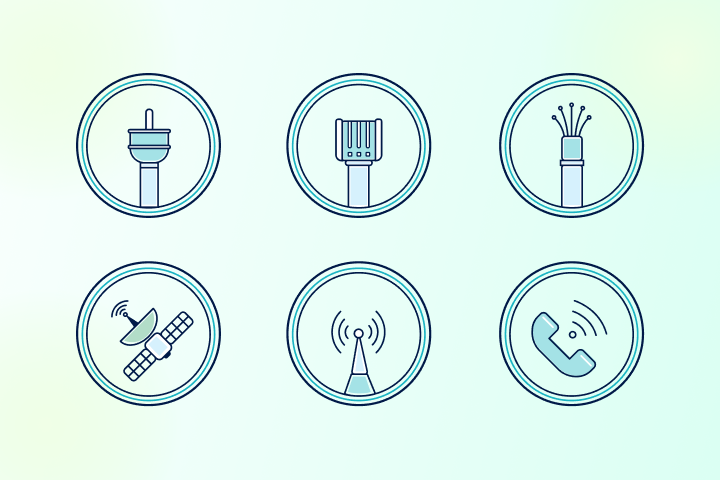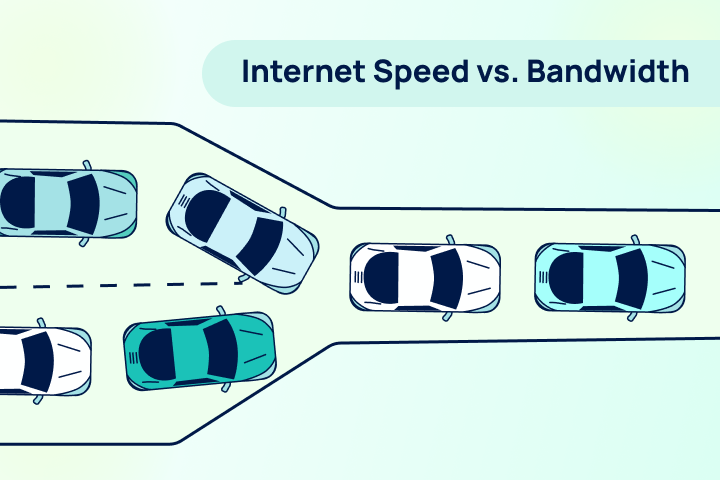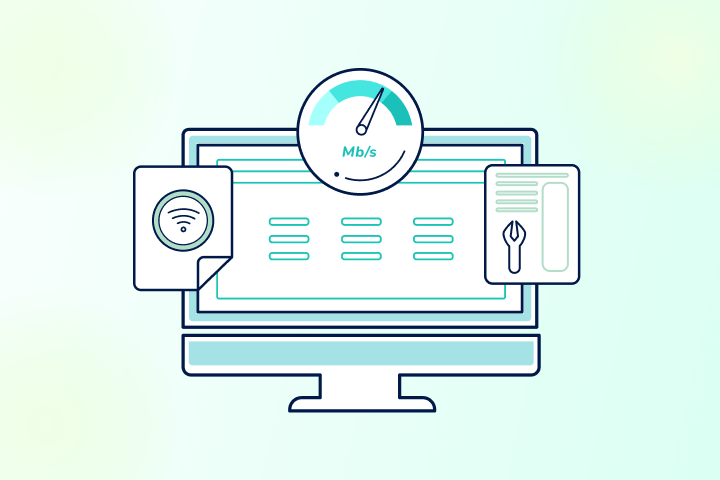When it comes to streaming video, your internet speed can make all the difference in the quality of the video, and your enjoyment. The good news is that you don’t need the fastest, most expensive type of internet connection.
The faster your internet speed, the better quality video you can stream. And with less buffering and fewer disruptions.
Here’s a look at the minimum and recommended download speed you need for the various video resolutions commonly available from today’s streaming platforms:
| Video Resolution | Minimum Download Speed | Recommended Download Speed |
| SD (480p) | 3 Mbps | 5 Mbps |
| HD (720p) | 5 Mbps | 10 Mbps |
| UHD (1080p) | 10 Mbps | 15 Mbps |
| 4K (2160p) | 25 Mbps | 30 Mbps |
| 8K (4320p) | 50 Mbps | 50 Mbps |
Internet Speed and Video Streaming
When you stream a video, the data is transferred from the server to your device in real-time. This means that your internet connection needs to be fast enough to handle the data transfer without any hiccups. If your internet speed is too slow, the video will start to buffer, which means that it will pause periodically while the data catches up. This can be very frustrating, and it can also ruin the immersion of the viewing experience.
Here’s a closer look at how your internet speed affects streaming video:
Buffering
Buffering refers to temporarily downloading a portion of the media file before it’s played back. This buffering process is essential to maintain a continuous playback experience.
However, a slow internet connection can cause frequent and prolonged buffering, disrupting the viewing pleasure with the spinning wheel or a loading screen. This frustrating experience often stems from insufficient internet speed or perhaps too much internet traffic on your connection. Adequate internet speed helps prevent buffering issues and ensure smooth playback.
High-Quality Visuals and Audio
The visual and auditory components of streaming videos are the essence of the experience. High-definition resolutions, vibrant colors, and immersive sound enhance the experience of the show you’re watching. However, delivering these elements requires substantial data transfer, and this is where high-speed internet makes all the difference.
Smooth Playback and Frame Rates
Slower internet connections can lead to uneven playback and jitters, especially during scenes with rapid motion. Similar to resolution, faster internet ensures consistent frame rates and reduces frustration.
Reduced Latency
Internet latency, the delay between your actions and the content response, can disrupt live streaming events. Slow internet can result in noticeable delays and sync issues between audio and video. A high-speed connection minimizes latency, enabling real-time interactions and preserving the immersive nature of live events.
Real-Time Data Transfer
Live streaming, whether it’s a live sports event, a concert, or an online gaming session, relies heavily on real-time data transfer. Unlike pre-recorded content (shows and movies), live streaming requires a constant and uninterrupted transmission from the source to your device. A slow internet connection can cause delays in receiving this data, resulting in a lag between the live event and what you see on your screen.
Streaming Video and Internet Speed Considerations
Here are some additional things to keep in mind about internet speed and video streaming:
- The type of video you’re watching can also affect how much bandwidth you need. For example, live-streaming events typically require more bandwidth than pre-recorded content.
- The number of people using the internet in your home can also affect your streaming quality. If multiple people are streaming at the same time, it can put a strain on your internet connection.
- The distance between you and the server can also affect your streaming quality. The further you are from the server, the longer it will take for the data to travel, which can lead to buffering.
Tips to Improve Streaming Quality with Any Internet Speed
- Use a wired connection instead of WiFi. Wired connections are generally more reliable and faster than wireless.
- Closing any other applications that you’re not using will free up bandwidth for streaming.
- The closer you are to the WiFi router, the better your signal strength will be.
- Upgrade your internet plan. If you’re still having problems with buffering or low resolution, you may need to upgrade your internet plan to a faster speed.
As technology advances and streaming platforms offer more immersive and higher-quality content, having a high-speed internet connection is no longer a luxury but a necessity. By investing in a suitable internet plan that aligns with your streaming habits, you can ensure that you enjoy your favorite movies, shows, and live events without compromise, all in the highest quality.



